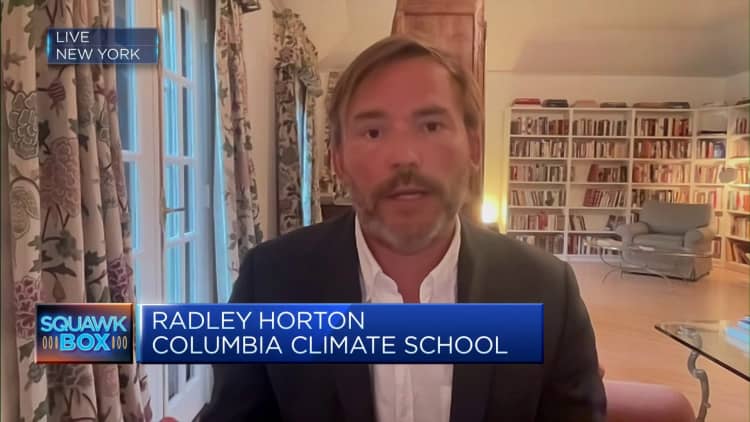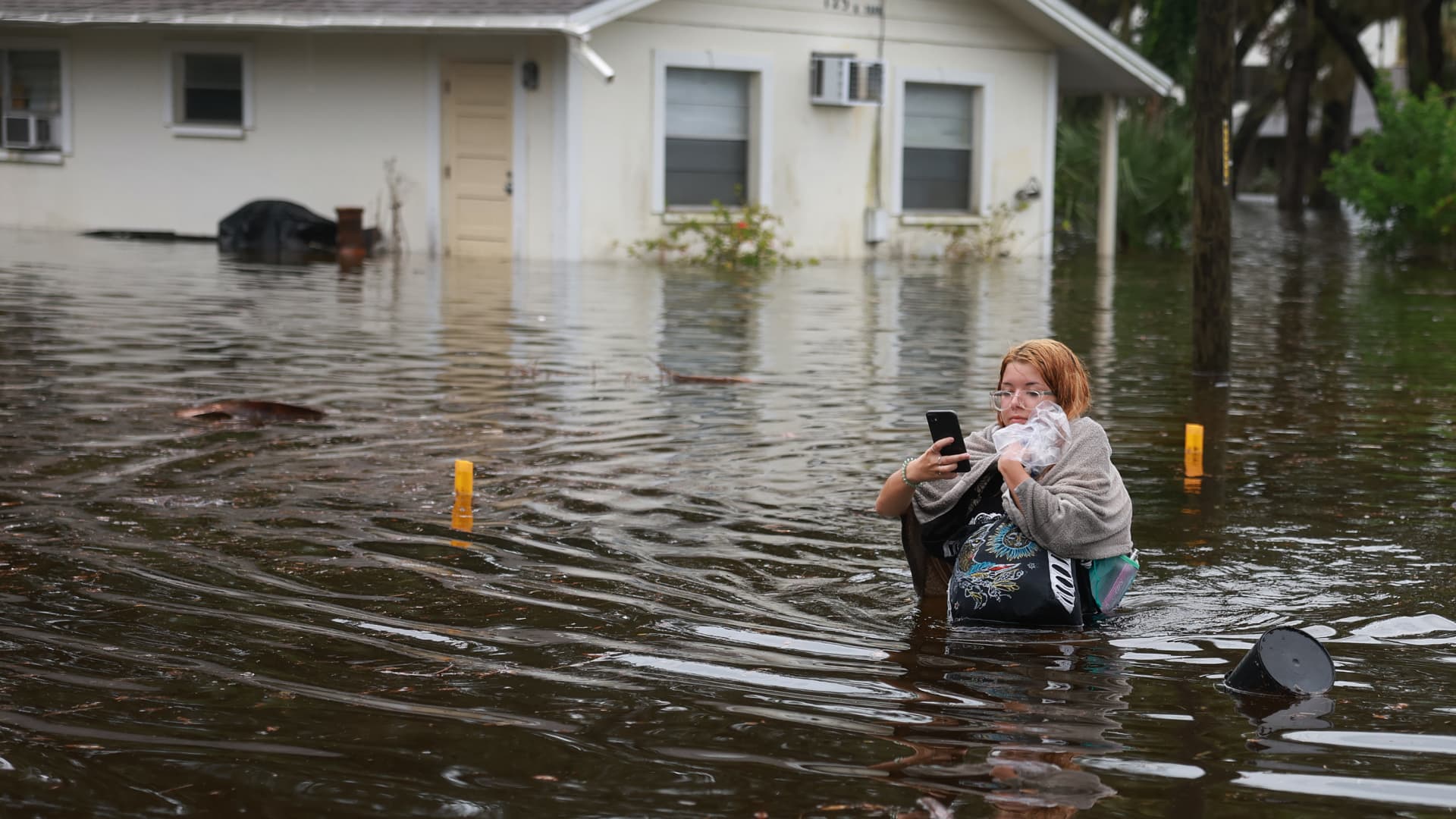Table of Contents
Makatla Ritchter wades through flood waters just after obtaining to evacuate her dwelling when the flood waters from Hurricane Idalia inundated it on August 30, 2023 in Tarpon Springs, Florida.
Joe Raedle | Getty Visuals
Local climate change is expected to impose “substantial economic charges” on U.S. homes in the coming decades, according to a new report by the U.S. Division of the Treasury.
Involving 2018 and 2022, weather conditions and local weather disasters price extra than $617 billion, it observed — a file. Inside of the last 12 months, 13% of People reported economic hardship thanks to intense climate occasions and disasters.
“Significant flooding, wildfires and intense heat are imposing substantial financial burdens on households throughout the place,” Graham Steele, assistant secretary for financial establishments at the Treasury Office, reported in a statement.
The government report flags the most important fiscal dangers from a warming world. In this article are some of them.
Pay and advantage disruptions
Flooding and wildfires can damage organizations, forcing employers to furlough or lay off team, the Treasury Department located. This could guide employees to lose their pay out for a interval, and likely their office rewards, which includes overall health insurance plan or retirement system assistance.
Recurring hazards this sort of as wildfires or warmth waves could cut down the accessible work in certain sectors, main to extended intervals of unemployment for folks. Staff in the fields of agriculture, design, manufacturing and tourism may be specifically tricky hit.
Meanwhile, “outdoor personnel,” as the report describes these who invest a lot more than two-thirds of their workday exterior, comprise about a fifth of the civilian workforce and are between the most probably to see their several hours and pay out disrupted.
A lot more from Private Finance:
How a federal govt shutdown may perhaps have an affect on Social Safety and Medicare
The 3 greatest retirement rollover problems and how to prevent penalties
This acquire may be a ‘grenade’ to a effectively-prepared retirement
At periods in the Treasury’s report, the economical menace is secondary to a far more existential hazard specified the dire local climate conditions predicted.
For example, it warns that extended exposure to excessive heat may perhaps impair workers’ actual physical and cognitive qualities, “which can decreased their total efficiency and, consequently, result in a decrease in their earnings.”
Assets destruction
Local climate disasters impacted 1 in 10 properties in the U.S. in 2021, and led to damages exceeding $56 billion, in accordance to a person recent review by CoreLogic, a worldwide property info agency.
Family members unable to immediately spend for repairs in the wake of weather disasters might see their residence values decline or vanish, the Treasury Section claims. It details out that Hurricane Katrina damaged about 70% of all Louisiana attributes. Practically a fifth of all those attributes remained unrepaired 5 a long time later, and 8% have been uninhabitable.
A lot of households could have to relocate owing to local weather change, incurring relocation expenditures.
Better selling prices for shopper items, energy
Climate improve-caused disruptions to supply chains could guide to soaring price ranges on particular merchandise, the Treasury Division finds.
“When local weather dangers raise food stuff costs, this may perhaps result in further homes to practical experience food insecurity,” the report says. “Food stuff insecurity disproportionately impacts reduced-income homes, people led by single moms, people with little ones, and homes in Southern states.”
Homes may perhaps see their electricity expenses rise as well as climate change worsens. Heat waves, for illustration, will lead lots of households to use their air conditioners much more regularly. Local climate events can also guide to elevated health care bills. The Treasury report notes that in one particular assessment from 2012, 10 climate events led to a whole of $10 billion in well being-connected costs.

Andrew Rumbach, a senior fellow at the Urban Institute, explained he was glad to see the federal government concentrating on climate change’s economical impacts on households. Normally that dialogue is centered on societal fees, he reported.
But, “at the stop of the day, it is individuals and people that will have a large amount of these costs,” he included.





